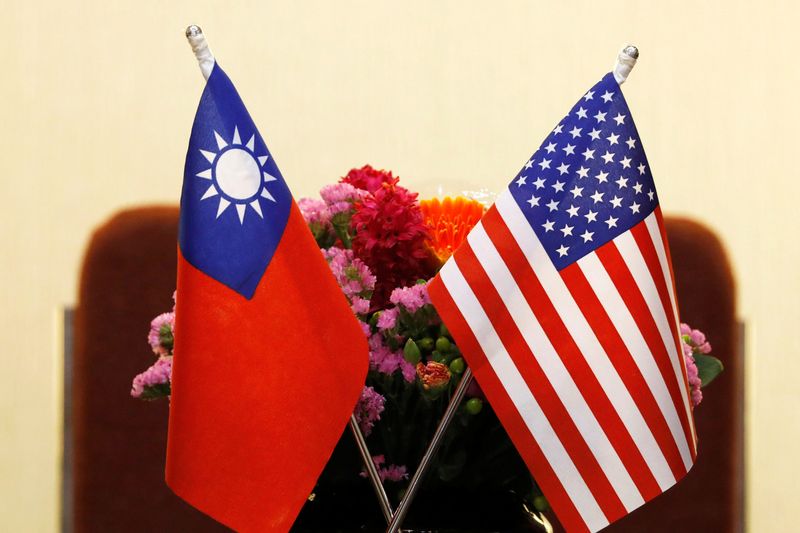Taiwan says committed to strengthening defence after Trump comments
2024.07.18 00:53
TAIPEI (Reuters) – Taiwan is committed to boosting its defences and working with the United States, the foreign ministry said on Thursday, days after Republican presidential candidate Donald Trump was quoted as saying Taiwan should pay to be defended.
The United States is Chinese-claimed Taiwan’s most important international backer and arms supplier, despite the lack of formal diplomatic ties, and Washington is bound by law to provide the means for the island’s defence.
Taiwan’s government has made defence modernisation a priority, including developing its own submarines, and has said many times the island’s security rests in its own hands. The budgeted defence spending for this year amounts to 2.5% of its gross domestic product, a historic high.
Speaking to reporters in Taipei, Kuoyu Chiao, deputy head of the North America department at Taiwan’s foreign ministry, said Taiwan and the United States share the universal values of democracy, freedom, and human rights, and have a mutually beneficial economic relationship.
“Therefore, Taiwan has long enjoyed cross-party and cross-government support in the United States,” he said, declining to comment directly on Trump’s remarks.
“In the future, we will continue to work together with the United States and like-minded countries to strengthen our national defence capabilities and jointly maintain peace and stability in the Taiwan Strait,” Chiao added.
A top national security adviser to Trump said on Wednesday that Taiwan needs to boost its defence spending significantly in the face of potential Chinese aggression.
Late Wednesday, Taiwan’s ruling party said Trump’s comments regarding the island were nothing more than a hope that Taiwan would show the same determination to protect its own security as Japan, South Korea and the European Union.
“China is the biggest threat to the United States; this is the consensus of the Democratic and Republican parties,” Taiwan’s Democratic Progressive Party Secretary-General Lin Yu-chang said in a statement. “Now is the best era of Taiwan-U.S. relations.”
Unlike Japan and South Korea, Taiwan and the United States have no formal defence agreement, a previous treaty being terminated in 1979 when Washington switched diplomatic recognition to Beijing.
Taiwan has a backlog worth some $19 billion of arms deliveries from the United States, which U.S. officials and politicians have repeatedly pledged to speed up.

Beijing has never renounced the use of force to bring Taiwan under its control. President Lai Ching-te, who says only the Taiwanese people can decide their future, has repeatedly offered talks but been rebuffed.
U.S. President Joe Biden has upset the Chinese government with comments that appeared to suggest that the U.S. would defend Taiwan if it were attacked, a deviation from a long-held U.S. position of “strategic ambiguity”.








